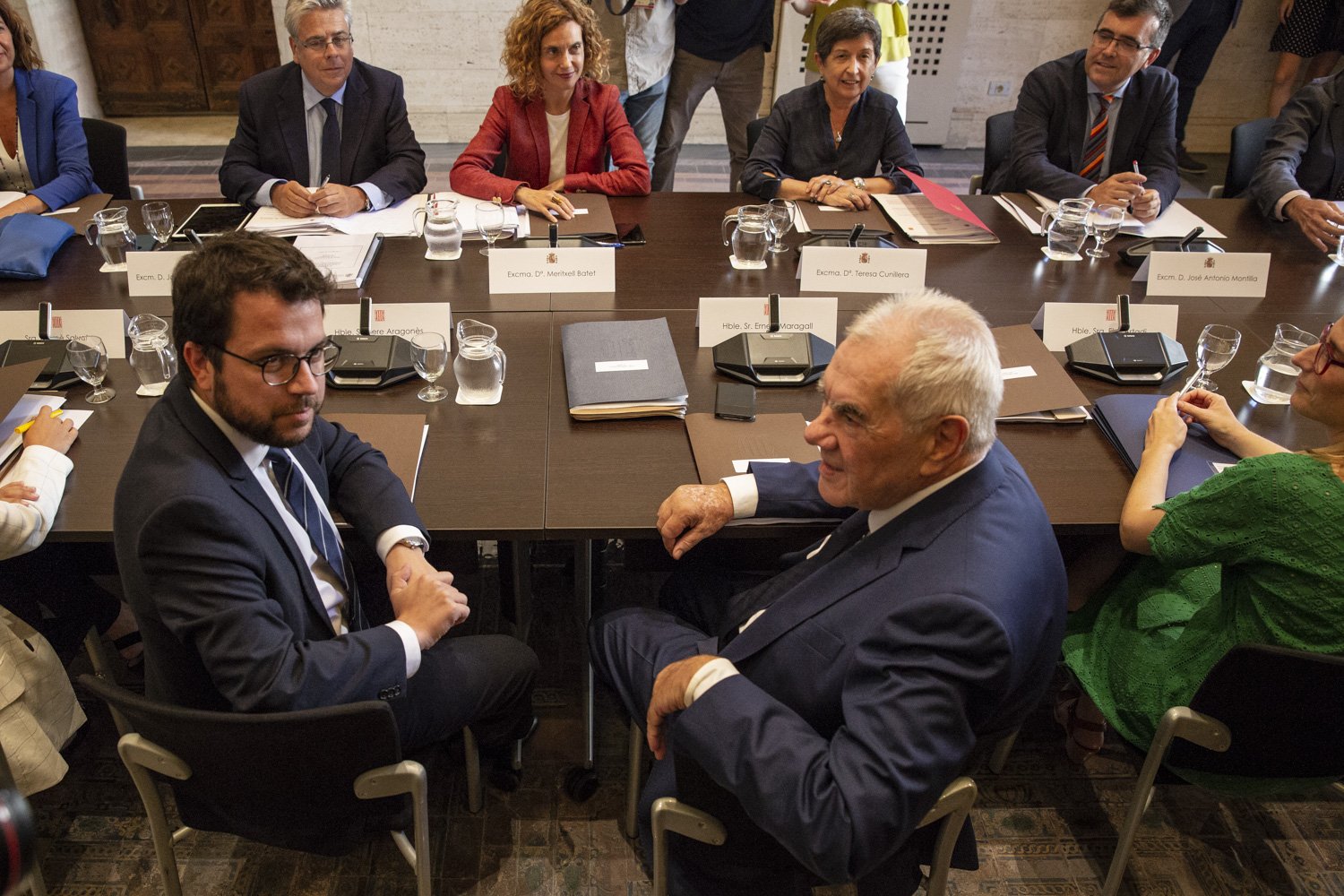The Spanish government has this afternoon rejected the possibility of negotiating with the Catalan government about the right to self-determination and the situation of the pro-independence leaders in pretrial detention. The announcement was made by Spanish minister Meritxell Batet after the first meeting of the bilateral Spain-Catalonia commission in seven years. The meeting, held in the government palace in Barcelona, lasted more than three hours. It was to represent the restart of dialogue after years of practically non-existent relations, but the reality proved to fall short of the Catalan government's expectations.
Despite the clash over self-determination and the prisoners, Spanish territorial policy minister Meritxell Batet celebrated the meeting taking place, saying it meant the "opening of dialogue" between the two administrations leading to "institutional normality". Nonetheless, she also admitted there are "important discrepancies", especially over self-determination and the prisoners. She urged the Catalan government to look to modify the Catalan Statute of Autonomy and the Spanish Constitution if they want to change Catalonia's "constitutional fit".
The Spanish delegation criticised the Catalan government for certain positions during the meeting. For example, the block of the Parliament and the lack of "neutrality" of institutions and public spaces.
Despite everything, Batet highly rated the reopening of dialogue between the two governments, arguing that Pedro Sánchez's executive "has an inclusionary project for Catalonia". She also guaranteed "institutional loyalty", an element she warned was necessary to see "true advances".
Some positive results
As expected, no specific agreements were reached today. The meeting, however, has led to the activation of a number of other committees and subcommittees from September, in accordance with the Catalan Statute of Autonomy.
One of the main subcommittees is for progress tracking, prevention and solution of conflicts which has to discuss appeals against Catalan laws brought by the Spanish government before the Constitutional Court. This was one of the points where the two executives came closest to agreeing.
Three other committees will also start work: cooperation and collaboration, international action and infrastructure. The Spanish government has promised to nominate the members of these commissions in August. It's expected there will be two further commissions to come, one referring to "economic and financial matters", and one for transfers between the two executives, "paralysed for years" to "review the started and pending transfers".
Next meeting
The next meeting of the bilateral commission will be held in December. In the meantime, different committees and subcommittees created today will meet.
Today's meeting was chaired by Catalan foreign minister, Ernest Maragall. Accompanying him from the Catalan government were the vice-president and economy minister, Pere Aragonès; the presidency minister, Elsa Artadi; the secretary general of international action, institutional relations and transparency, Mercè Salvat; the government's delegate to Madrid, Ferran Mascarell; the director of the government's Legal Cabinet, Francesc Esteve; and the director general of relations with institutions and the Parliament, Aleix Villatoro.
Meritxell Batet led the Spanish government delegation, which included the secretaries of state for territorial policy, Ignacio Sánchez; the treasury, Inés María Bardón; infrastructure, Pedro Saura; and relations with the Courts, José Antonio Montilla; as well as the Spanish government's delegate to Catalonia, Teresa Cunillera, and the secretary of the delegation, José María Pérez.

